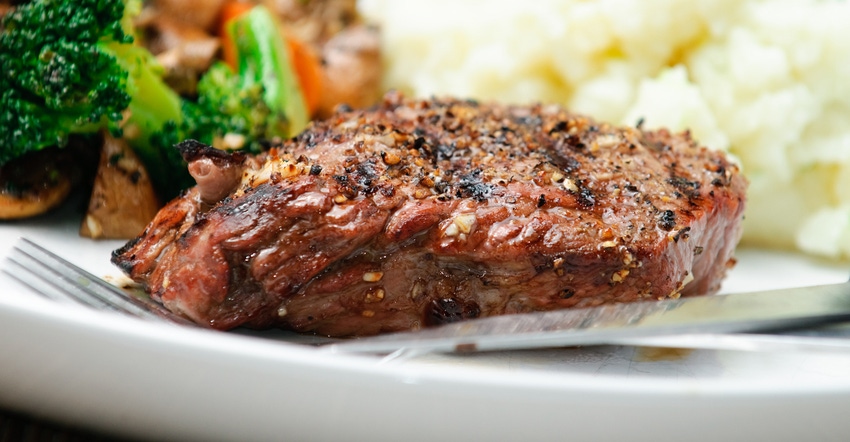June 24, 2019

New York City Mayor Bill de Blasio's plan to reduce meat consumption in schools and other city facilities has been met with criticism by Nebraska agriculture.
The Green New Deal, a wide-ranging initiative, includes reducing purchases of beef by 50% at all city-controlled facilities — including schools, prisons and hospitals.
In a recent letter criticizing de Blasio's plan, Nebraska Farm Bureau President Steve Nelson wrote, “This ‘strategic initiative’ aimed at reducing the city's contribution toward climate change ignores both climate and nutritional science, and only serves to further divide urban and rural populations. As the largest agricultural organization representing the second-largest beef producing state, we urge you to reconsider this initiative and help us tell the great story of beef sustainability.”
New York City also plans to phase out all processed meat products purchased by city agencies. The agricultural sector, and beef in particular, has become the focus of attention by activists who want to highlight the effect eating meat has on global carbon emissions.
“Unfortunately, one of the most harmful and erroneous myths that exist in public discourse today is that U.S. beef production is destroying the planet,” Nelson wrote. “The truth, which is backed by peer-reviewed science, is that U.S. beef producers are producing far more beef with fewer inputs and contribute fewer greenhouse gas (GHG) emissions than what they are blamed for.”
According to a study recently published in the academic journal Agricultural Systems, beef cattle production only accounted for 3.3% of all U.S. GHG. By comparison, transportation and electricity generation together produced 56%.
It also is important to note that when compared with 1977, today's beef producers produce the same amount of beef with 33% fewer animals.
"This improved efficiency has reduced the industry's carbon footprint by 16% and has reduced the industry's consumption of both water and feed as well," Nelson wrote. "Outside of the environmental factors, it should also be noted that today's beef industry contributes to rangeland health, medical, and pharmaceutical products/research, as well as being one of the most healthy and nutrient-rich food products available."
"Unfortunately, despite our success, many of those whose only connection to production agriculture involves three meals a day seem to be the most vocal about what they perceive are the shortcomings in our industry,” Nelson added. “It is our hope you look beyond your own very large urban backyard and come visit the American farm and ranch families who devote their lives to producing the food, fiber and fuel. We would be happy to host you in Nebraska at any time.”
Nebraska Gov. Pete Ricketts also recently issued a statement criticizing de Blasio's initiative. Ricketts, along with the Nebraska Department of Agriculture, have been active in promoting Nebraska beef in New York City — including visiting steak houses and meat markets in the New York metro area serving Nebraska beef.
"Bill de Blasio's war on beef is anti-agriculture and anti-science," Ricketts said. "Nebraska's farmers and ranchers are the original conservationists, and they help raise the best beef in the world. I know the people of New York City enjoy Nebraska beef, because the Department of Agriculture and I have worked to promote Nebraska beef in the city. I urge the people of New York to reject this senseless plan."
Sources: Nebraska Farm Bureau and the Nebraska Governor's Office, which are solely responsible for the information provided and are wholly owned by the source. Informa Business Media and all its subsidiaries are not responsible for any of the content contained in this information asset.
You May Also Like




